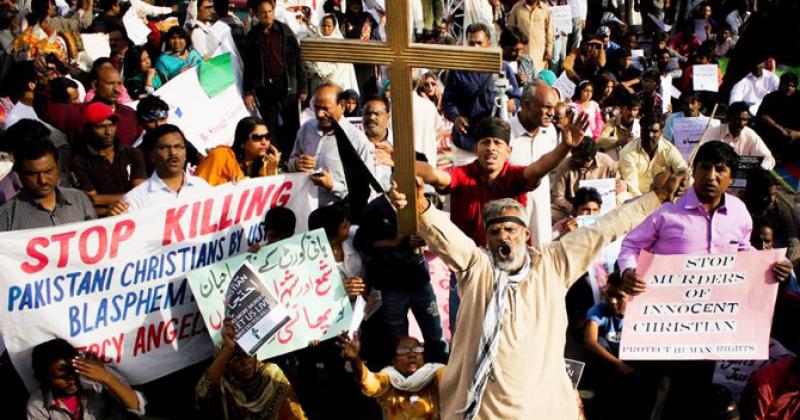A Christian was killed in cold blood and his wife’s life is hanging from a thread because the woman switched from Islam to Christianity.
She was an apostate. He was guilty of corrupting and dishonouring the woman. The fate of 28-year-old Aleem Masih and 23-year-old Nadia Din Meo, a married couple from Lahore, was doomed in Pakistan. After the young couple married and the girl converted to Christianity, Nadia’s relatives could not bear the dishonour of having a Christian convert in the family. So after a merciless manhunt, they committed a cold blooded murder. Both young people were shot. Aleem died on the spot. Nadia was supposed to meet the same fate too but miraculously she made it through and is currently in hospital, hovering between life and death.
Aneeqa Maria Anthony, the lawyer and co-ordinator of NGO “The Voice”, who is providing legal assistance in the case, told Vatican Insider that complicity and silence over an assassination many believe to be “just and well-deserved” mean that the guilty could well go unpunished. According to an Islamic law, there is no escape for the apostate and she deserves to die. The same fate as that met by the man who led Nadia onto “the road to perdition”, introducing her in other words to the Christian faith.
“Nadia’s family was distressed by the fact that the girl had ruined the family’s reputation by converting. The relatives started threatening the two young people who fled to Narang Mandi, 60 km from Lahore in search of safety. Insults and threats were directed at Aleem Masih’s Christian family on more than one occasion. The family reported these incidents to the police. But in vain: on 30 July, the siblings and other members of Nadia’s family tracked them down and killed [the husband] in cold blood”.
Aleem was shot three times: in the legs, in the ribs and in the mouth. Nadia was shot in the ribs and in the stomach. “Everyone thought both were dead; relatives boasted they had killed two “dogs”: the derogatory name given to Christians,” Anthony said. But when the police arrived at the scene of the crime, they realised the girl was still alive and took her to a hospital in Lahore, where she is in a critical condition.
“Nadia’s relatives have not let anyone approach the girl, preventing her from issuing any statement that could prove useful in piecing together what happened so that the guilty can be brought to justice, “the lawyer said.
Aleem Masih’s family, however, reported the incident and from an initial investigation, it emerged that Muhammad Azhar, one of Nadia’s relatives confessed to Aleem Masih’s murder the attempt on Nadia’s life, saying he is “happy to have killed a Christian”. The young man is convinced he will go to paradise and be remembered as a hero. He belies he restored the family’s honour and pride.” The lawyer said she is fully committed to following this case in order to ensure it is not forgotten about and the Christian couple obtains justice.
There are still countries out there that prescribe draconian punishments or death for so-called apostates who abandon Islam. This is in clear violation of the principles of religious freedom and freedom of conscience as set forth also in the Universal Declaration of Human Rights. Apostasy (the renunciation of the Muslim faith), is considered an offence in about 20 or so countries throughout the world. In twelve of these countries, apostasy is punishable by death. Pakistan does not uphold the death sentence for apostasy but it does for blasphemy. Worryingly, punishment for the latter crime seems to be handed out with a certain casualness and is often resorted to in order to resolve private disputes.
In 2007, some religious parties in Pakistan proposed a bill that put forward the death penalty as a punishment for acts of apostasy for males and a life sentence for women. But the bill did not pass through Parliament. Although it is theoretically possible to change faith in Pakistan, renouncing Islam, the state tries to hinder the process and those wishing to convert from Islam face the threat of the blasphemy law.
One case in point was that of a Christian who converted from Islam in 1990 and was falsely accused of insulting the Prophet. The courts sentenced him to life in prison at the first instance and appeal stages. Some Pakistani priests told Vatican Insider that this is why there are cases of “crypto-Christians”, people who have converted to Christianity in secret.
